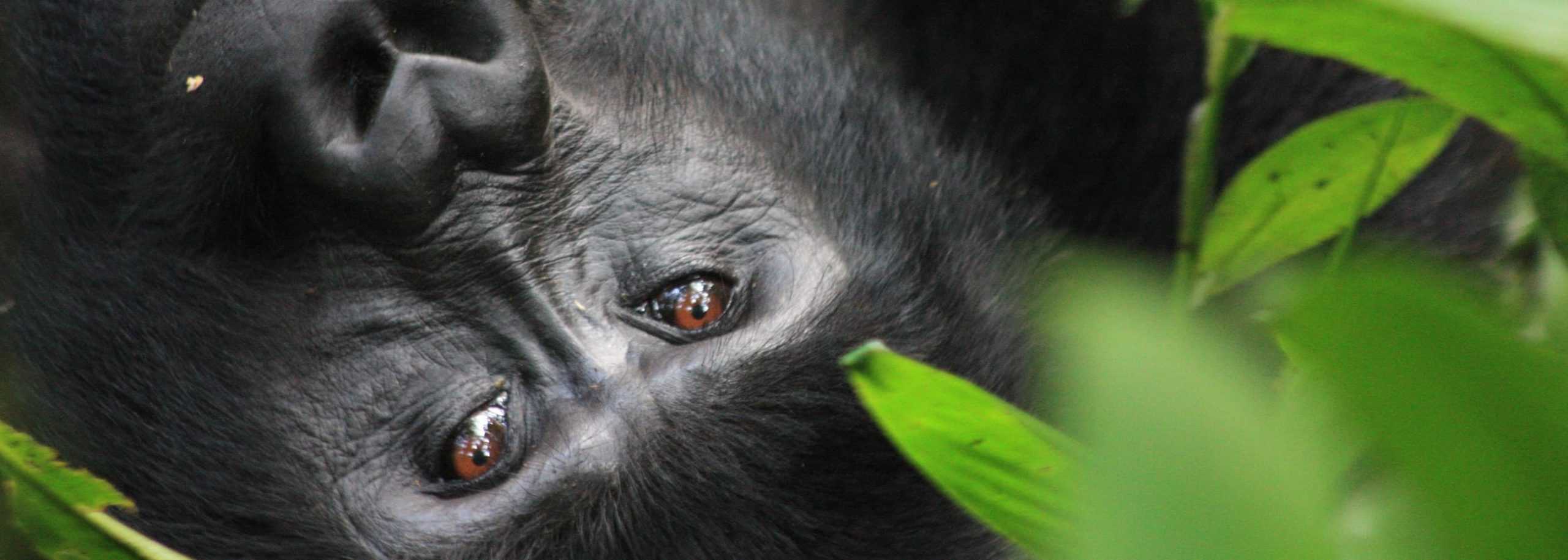ACODEC Study Tour: Same region, similar language, different context
Advocacy | 29/03/11
The jagged summit of Mikeno could be seen peeking out from between the other volcanoes in the Virunga chain throughout the week as seven members from a fledgling Congolese community group, l’Association Communautaire pour la Développement et la Conservation (ACODEC), toured the region to meet with their counterparts in Uganda and Rwanda.
Mikeno dominates the landscape of the appropriately named Mikeno Sector of Virunga National Park in eastern Democratic Republic of Congo, the sector of the park in which mountain gorillas live. Just outside the park is where the members of ACODEC and their communities and families live. ACODEC spent several days in Uganda and Rwanda looking at how other communities had organized and begun to directly earn income from tourism and, in turn, invest it back into their communities.
The first stop took the group to Nkuringo, on the western edge of Bwindi Impenetrable National Park in Uganda. There they met with their counterparts from the Nkuringo Community Conservation and Development Foundation (NCCDF) which formed in 2004.

ACODEC and NCCDF executive committee memebers pose for a group photograph after their discussions at the NCCDF office in Nteko. IGCP's Altor Musema and Beda Mwebesa, who coordinated the study tour, are also pictured.

ACODEC members tour the luxury Clouds Mountain Gorilla Lodge. NCCDF owns the lodge and uses the money raised for community conservation and development projects.
While IGCP’s Altor Musema served as translator between the francophone Congolese and the anglophone Ugandans, the discussions slowly migrated into a mix of Kinyabwisha and Kifumbira, Congolese and Ugandan languages respectively, but so much alike that the language barrier virtually disappeared. And when ACODEC moved to Rwanda and met with the Sabyinyo Community Livelihoods Association (SACOLA), the common language was a mix of Kinyabwisha and Kinyarwanda.

SACOLA Community Guide Emmanuel Harerimana (left) discusses the Cultural Center with IGCP's Altor Musema and ACODEC members. Sabyinyo volcano serves as backdrop.

Fabienne ZABIBU (right), ACODEC treasurer, on the SACOLA Community Walk. Sites visited by ACODEC included traditional weavers, blacksmith, cobler, and banana beer brewing. The Community Walk is one way that the SACOLA community generates income for community development and conservation projects.
After a visit to the Sabyinyo Silverback Lodge, the luxury lodge owned by SACOLA, ACODEC started to reflect on what they learned and what that might help identify a way forward in their own efforts to improve their communities. ACODEC had listened carefully to the challenges that NCCDF and SACOLA had faced, especially in their organizational structure in the early years. They had also seen their successes and how they are financially empowered to create positive change in their communities.
What impressed them were the quality lodges as well as the cultural center and community walk and they long to see something similar on the Democratic Republic of Congo side of the border, especially something community owned. In an intensive reflective process, ACODEC and IGCP staffers started to tease apart what might be possible given the context in the DRC, and where to start.
The ideas are flowing and there are clear first steps to be taken- including strengthening the organizational structure and the development of membership policies. Those are underway. The discussions that took place in the field among ACODEC, NCCDF, SACOLA, and IGCP will continue when the seven members of ACODEC who participated in the study tour report back to the additional 30 founding members this coming Thursday.
What is also on the table for discussion is how IGCP will work with ACODEC in the coming years. It is clear that what is developed with ACODEC in the future won’t look identical to what NCCDF and SACOLA have done. But what will be identical is the development of a mechanism to get revenue from protection of the park (either from tourism or some other source) directly in the hands of an empowered community, to use to both improve their communities and contribute to the protection of mountain gorillas and their habitat.

